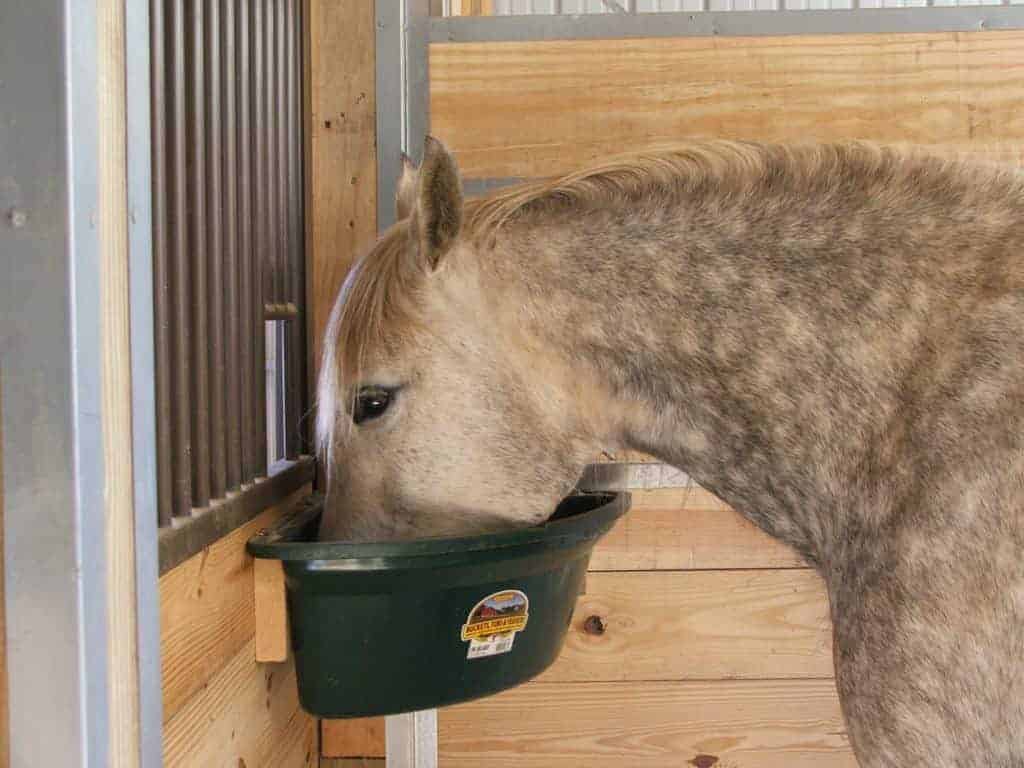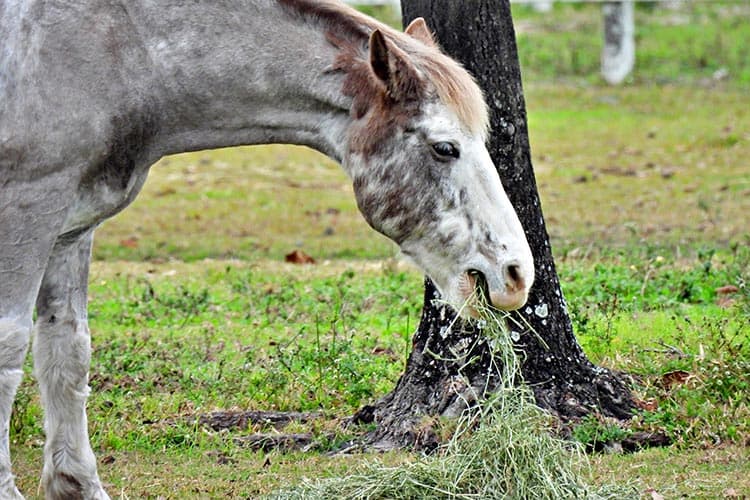
How To Get a Horse’s Coat To Dapple
A dappled coat might be a sign of optimum equine health and nutrition, but the reality is more complicated. One equine nutritionist offers advice on bringing out the bloom in your horse’s coat.

A dappled coat might be a sign of optimum equine health and nutrition, but the reality is more complicated. One equine nutritionist offers advice on bringing out the bloom in your horse’s coat.

Buttercups can cause mouth pain and blisters, drooling, oral and gastric ulcers, colic, and diarrhea in horses that eat them.

When feeding flaxseed to your horses, knowing the difference between whole seeds, ground seeds, and meal is important. Here’s why.

Compared to soaking or leaving hay dry, steaming conserves beneficial microorganisms found while targeting harmful bacteria and respiratory allergens.

Learn about feed allergies in horses—including allergy testing—and what you can do to make sure your allergic horse gets the nutrition he needs.

A senior gelding is urinating more frequently after alfalfa got added to his diet. Here are the possible reasons.

Our nutritionist helps resolve a debate between friends about whether a horse with poor hoof quality would benefit from a hoof supplement or a properly portioned ration balancer.

Is your horse’s annual wellness exam comprehensive? Learn about common wellness steps and how your veterinarian can help you address and correct problems you might encounter.

An equine nutritionist addresses the different types of salt available and how to pick the right one.

British researchers watched horses feeding in groups to find out if dominance is linked to weight gain. What they found might surprise you.

Grain or hay: Which is better to keep horses from losing weight during winter?

Dietary deficiency of vitamin E can lead to three specific neurologic and muscular diseases. Find out if your horse is getting enough.

Is your horse a picky eater? Learn about reasons your horse might turn his nose up at his meals and what you can do about it.

Rats and mice spread disease and ruin horse feed. Learn how to reduce populations in your barn.

An equine nutritionist explains the difference between international units (IU) and milligrams (mg) and how to make sure your horse is getting enough vitamin E.

Dr. Laurie Lawrence of the University of Kentucky describes recent equine nutrition research from her lab, from deciphering forage composition to monitoring obesity. She also shares common misconceptions about feeding horses.
Stay on top of the most recent Horse Health news with
"*" indicates required fields